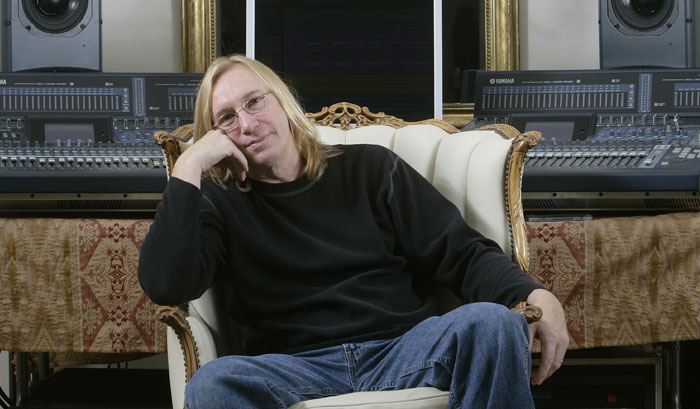


Nashville-based engineer/producer Chuck Ainlay's discography reads like a roll call of country music nobility: Steve Earle, George Strait, Conway Twitty, Reba McEntire, Willie Nelson, Waylon Jennings and the Dixie Chicks all appear on the list.
But country isn't Ainlay's only genre--he's also done records with Peter Frampton, Melissa Etheridge, Lyle Lovett, Sheryl Crow and Dire Straits. In fact, working with Dire Straits guitarist Mark Knopfler has become something of a habit for Chuck.
"We've just had a ball making records over the years," he says. "I was first called in to engineer on Dire Straits' On Every Street. Mark and I did a lot of hanging out, talking about music, and we just hit it off. Then, when it came time for him to do his first solo album, Golden Heart, he called me to engineer and produce it, and I've done stuff with him ever since."
The 02R96 does a lot of things really well.
Most recently, Ainlay worked on a series of live concert recordings from Knopfler's summer tour. "We basically wanted to give fans the opportunity to download a mix of the show they were at," he explains. "So I came up with the idea of using the current hard-disk technology and small-format consoles to record each date, post it on a server and allow Mark's fans to download them. We'd record each concert, send the data back to Nashville on a FireWire drive and mix everything here."
A pair of Yamaha O2R96 consoles helped Chuck create final mixes quickly and affordably. "The O2R96 does a lot of things really well," he says. "For one thing, they let us set up a template, so we could pull up things on the same channels for each show. All we had to do was mix it live, just like you would a concert--but we also had the opportunity to nudge, fix and tune things, and mute the mics that weren't being used. Basically, try to make it sound more like a recording."
Ainlay relied heavily on the O2R96's internal effects. "We were doing a fair bit of Eqing and compression," he explains. "Everything was originally recorded with no EQ, so every bit of EQ you hear on these mixes was done inside these consoles. I did some compression as plug-ins in Nuendo, but mostly it's the Yamahas."
In fact, the project probably couldn't have happened on a larger console. "It was a lot of music, and we had to work economically," notes Chuck, "and as great-sounding as my SSL 900J is, you can't instantly reset it the way you can the O2R96. That was a major factor. If I'd tried to work these mixes between other sessions in that room, I'd have to recall the console, which is time-consuming and, therefore, expensive. And with the Yamahas, we had a total of eight effects processors and 48 channels across one layer. Essentially, we were at about 54 channels. I just submixed the audience tracks inside Nuendo and the rest came up as individual channels on one layer. It was great!"
The O2R96 boards also fused seamlessly with Ainlay's Nuendo recording software. Nuendo, says Chuck, has several key advantages over rival platforms. "Nowadays, the various harddisk systems are on fairly level ground in terms of sonics, but I would give the edge to Nuendo. The 32-bit floating-point engine makes a difference. When I turn on plug-ins in some other platforms, I hear an instant degradation of sound--everything sounds a little flat. But I don't hear that inside Nuendo. I'm really comfortable with the ergonomics--the way you can zoom in and out, grab lots of channels and move around the session. You can usually do things with fewer clicks and keystrokes in Nuendo. And all the tools for surround are there, too."
Now that the live Knopfler sessions are wrapped, Ainlay is back to his usual diverse schedule. "I've been doing loads of new acts this year," he says, "and I'll probably start a new album with Mark sometime next year. We have an album of duets with him and Emmylou Harris coming out then, too." Of all the artists he's worked with, Knopfler is unique, reflects Chuck. "There aren't too many artists out there making the kind of records he makes. He's got an incredible fan base--and, as long as he stays true to his art, they buy his records. I'd never really encountered that until I met Mark. Usually it's either the producer trying to please the label or the artist worried about getting their next hit. With Mark, it's all about the song and what he wants to do creatively."
























